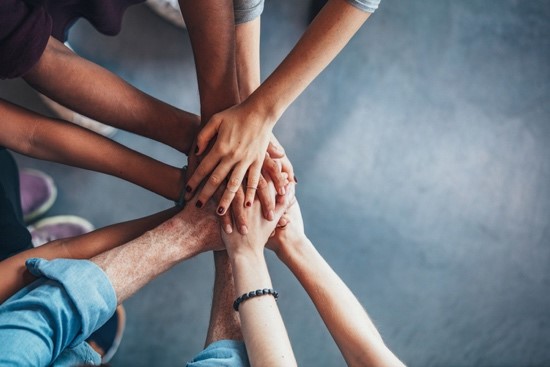 By Allie Faulkner, MSW candidate and CHRT/WHI Intern
By Allie Faulkner, MSW candidate and CHRT/WHI Intern
It has been widely reported that COVID-19 has hit some communities harder than others highlighting racial and economic disparities around the country and how these disparities have been intensified by the pandemic. In Washtenaw County, recent data tells us that residents in the 48197 and 48198 zip codes make up 29 percent of the county’s population, but account for approximately half of the county’s COVID-19 cases. Further, African Americans comprise 12 percent of the Washtenaw County population, but have made up 41 percent of the county’s COVID-19 hospitalizations.
Attuned to these inequities, many of Washtenaw County’s health systems and community organizations have focused on not only on addressing the county-wide impact of the virus, but also on specifically serving and supporting the communities that have been disproportionately affected.
The Washtenaw County chapter of My Brother’s Keeper (WMBK) is one of the community organizations expanding its response. With support from United Way of Washtenaw County, WMKB has been offering increased services in the West Willow neighborhood of Ypsilanti, organizing and distributing cleaning supplies and household items to area residents weekly. Not only have these weekly distribution events provided essential items to those who need them, but they have fostered new partnerships between My Brother’s Keeper Washtenaw and other community organizations–including the Washtenaw County Sheriff’s Office and the West Willow Neighborhood Association–promoting a shared sense of connection and cooperation in responding to the pandemic.
These distribution events have become sites for increased community outreach and information sharing. The Washtenaw County Health Department, for example, contributed to WMBK’s efforts by providing pamphlets and other materials that can connect people to resources and provide information about testing and prevention.
When combating the effects of the virus, Charles Wilson, community health promotion supervisor at the health department, says that this equity-based outreach has been boosted by the health department’s ongoing efforts to address health and racial disparities. In the years preceding the pandemic, the health department reframed many of its approaches to public health, making health equity a central priority. This was partly done by launching a Community Voices for Health Equity Team in 2017, a diverse group of residents who offer input on current health issues and suggest ways for the health department to address them.
“We’ve had to evolve into thinking and seeing everything we do through an equity lens,” says Wilson. When releasing prevention guidelines, the department made an effort to not only tell the community what to do to prevent contagion, but also to guide them toward the resources they needed to do it. In the county’s Face-Mask Do’s and Don’ts flyer, for example, the county offers guidance on mask wearing protocol, but also a health department contact for free masks.
“If we’re telling people that this is a public health precaution that you need to take seriously, we need to be able to ensure that they can have access to the materials needed to implement that public health message,” says Wilson.
More recently, the health department collaborated with area health care providers at Packard Health, St. Joseph Mercy Health System, and Michigan Medicine to expand testing services to heavily impacted areas, responding to the health department’s data that the 48197 and 48198 zip codes were experiencing much higher rates of infection. In the past weeks, ongoing testing sites have been operating at Perry Early Learning Center and Ford Elementary School. Pop-up sites have taken place at the Ypsilanti Township Civic Center, Bethel AME Church, and Community Family Life Center. These offer free testing with no requirements for appointments or insurance information. Details about future testing efforts can be found on the health department’s frequently updated website.
To address current hardships in the Latinx community, the Washtenaw Health Plan has partnered with the area organizations Mexiquenses, Washtenaw Interfaith Coalition for Immigrant Rights (WICIR), and Buenos Vecinos. These partnerships have helped connect area residents to care, financial assistance, household supplies, and masks. The partnership included organizing a cloth mask sewing initiative along with other distribution efforts that reached one hundred families in need.
In many ways, COVID-19 has confirmed much of what we already knew about health inequities in our county. It has also encouraged us to think creatively about how we engage in community partnerships and has helped us forge bonds that will hopefully continue into the future. Collaborations like these strengthen a community, but will they lead to long-term public health improvements or eliminate disparities? Perhaps, if as the nature of the pandemic evolves we continue to build on the networks that were strengthened during this difficult time.
